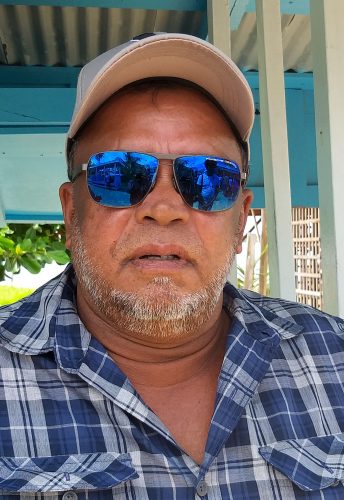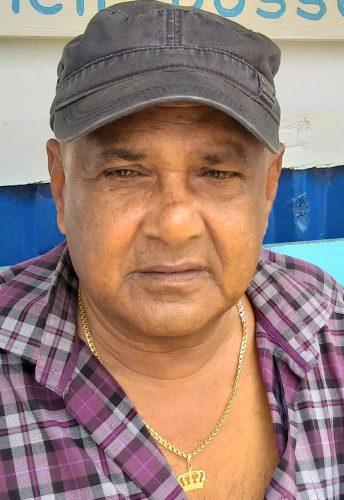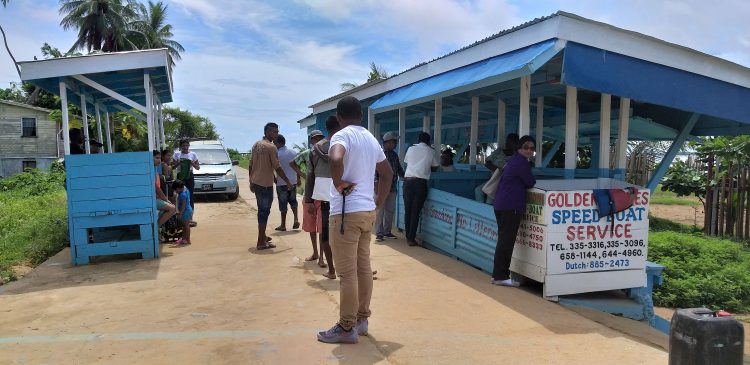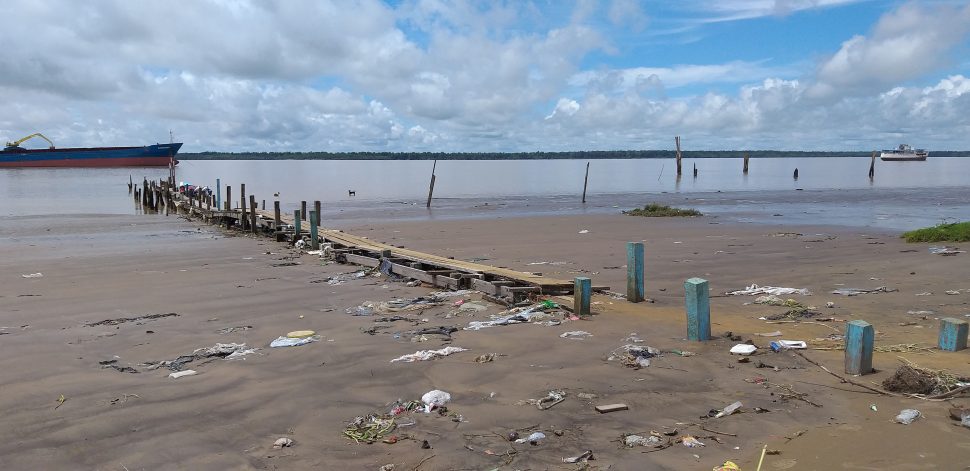With the suspension of the ferry service between Guyana and Suriname, daily traffic along the “backtrack” route has more than doubled.
Mohamed Mursaline, known as ‘Golden Gloves,’ who operates the “backtrack” speed boat service that is also known as Golden Gloves, told Sunday Stabroek that prior to the suspension of the Canawaima Ferry Service, his boats would cater to roughly 60 to 70 persons daily. They are now catering to about 150 to 200 daily.
Mursaline noted that the traffic increased after immigration authorities in both Guyana and Suriname decided to process travellers on both sides of the river.

Travellers leaving from Guyana are visiting the Springlands Immigration Office, located at Republic Square, a short distance away from the “backtrack” route, where their passports are being stamped and they then travel to Suriname.
In Suriname, they head to South Drain, Nickerie, for approval from immigration authorities there in order to freely travel in the country.
“I well equip here to handle the passengers,” Mursaline said. “As soon as the boat full they gone.”
He is not worried about a large vessel being used along the route to cater for vehicles and container traffic as he doubts it would be feasible. “This is a fast business. As soon as you get the passenger, you gone and with a big boat you got to wait on so many passengers to clear the expense.”
However, not all of his passengers see it the same way and with no immediate resolution in sight, many of them are upset.
According to Raj, who travels regularly between Guyana and Suriname, he would normally travel with his car but now he cannot. “It is very difficult, I does live over there and over here and in Europe and now it so difficult,” he said.

“With the [ferry] boat, everybody take the profit and now it break down nobody want to put the money. I think they need to privatise the boat and if they willing to sell I can buy the boat. Privatise better. They know how much they making and how much they gon’ spend, instead of Suriname talking something else and Guyana talking something else,” he added.
The man further noted, that he is disappointed in the way in which the situation is being handled between the two countries, especially since many travellers have been affected.
Boat owner Eno Bharrat, who plies the “backtrack” route admitted that while it is a faster alternative to the ferry service, passengers have been complaining of having to travel to separate locations in both countries to have their passports stamped.
Another traveller, who did not want to be named, added, “$2,000 to travel through the “backtrack” to go and $2,000 to come and then you have to pay to travel here to stamp and then over there to stamp and then you can move around in the country—it adding up to more money.”
The man, who was at the Springlands Immigration Office, noted, “This is harassing because you have to come here and wait how long and it does take about three hours.”

The ferry service was suspended on May 27th as a result of mechanical problems being experienced by the Canawaima Ferry.
‘Limbo’
Last Wednesday, the Ministry of Foreign Affairs noted that the service is offered through a joint venture, the Canawaima Management Company, which was launched between the governments of Guyana and Suriname in 1998 and as a result financial and operational arrangements fall to both countries, to be shared equally.
“That agreement is still functional. There is no onus on Guyana to fund the replacement of the service either temporarily or permanently. The joint company has to ensure that the monies collected by or on behalf of the business are properly directed to defraying the expenses incurred,” the ministry said in a statement.
The ministry also noted that Canawaima had sustained engine damage in September, 2017, but timely action was not taken by the company, which was unable to secure funding to meet the routine repair costs. The vessel had to be pulled by a tug-boat as a result, in order to facilitate passenger travel between Moleson Creek and the South Drain terminal.
It further pointed out that the maintenance of the ferry is to be shared equally based on the agreement between the two countries. “This has not occurred. In a bid to reduce the hardships to passengers and businesses using the service and in order to give the neighbouring state time to meet its obligations, the Government of Guyana has been funding most, if not all of the maintenance works on the ferry over the years,” the ministry asserted.
Government will request an early meeting so that the issues affecting the vessel’s operation can be fully ventilated and resolved to the full satisfaction of the parties, the ministry added.
Region Six Chairman David Armogan said that a timeframe is needed for the resumption of the ferry service. “They have us all in limbo,” he said, while noting that the disruption of the service has affected travel as well as trade between the two countries.
“There is big trading going on between Guyana Suriname… and the trade is going to be affected and the “backtrack” is going to get bigger and become more dangerous because the small boats will be plying up and down and it might get more expensive as the demand for the service gets more,” Armogan observed.
He also pointed out that people generally don’t like using the “backtrack” route and as a result some may now only travel between the two countries when it is absolutely necessary.
“The backtrack will put you out into the polder areas and the polder areas when the tide is low there is lots of mud to get to the shore and it is very inconvenient and it got old people will go across in knee-high mud and you have to walk the distance,” he said.
Armogan believes that both countries should fulfil their share of the responsibility for the repairs to the vessel. “They should have been looking at the parts to replace those engines while the tug was pushing this along,” he added.
Meanwhile, in the Upper Corentyne area yesterday persons also called for the two countries to work together in order to have a timely return of the ferry service.
A businessman, who operates a general store at Springlands, noted that his business is being drastically affected. “I usually travel over there and purchase items and bring it over with my trucks. Now I have no idea how I will get my items. Maybe when I sell out these items I have I may consider closing down my store,” he said.
“I wonder if the people in charge thought of us before closing the ferry or how it would affect we, the business community. Them even talk with any one of us or put anything in place to transport we products?” he questioned.






